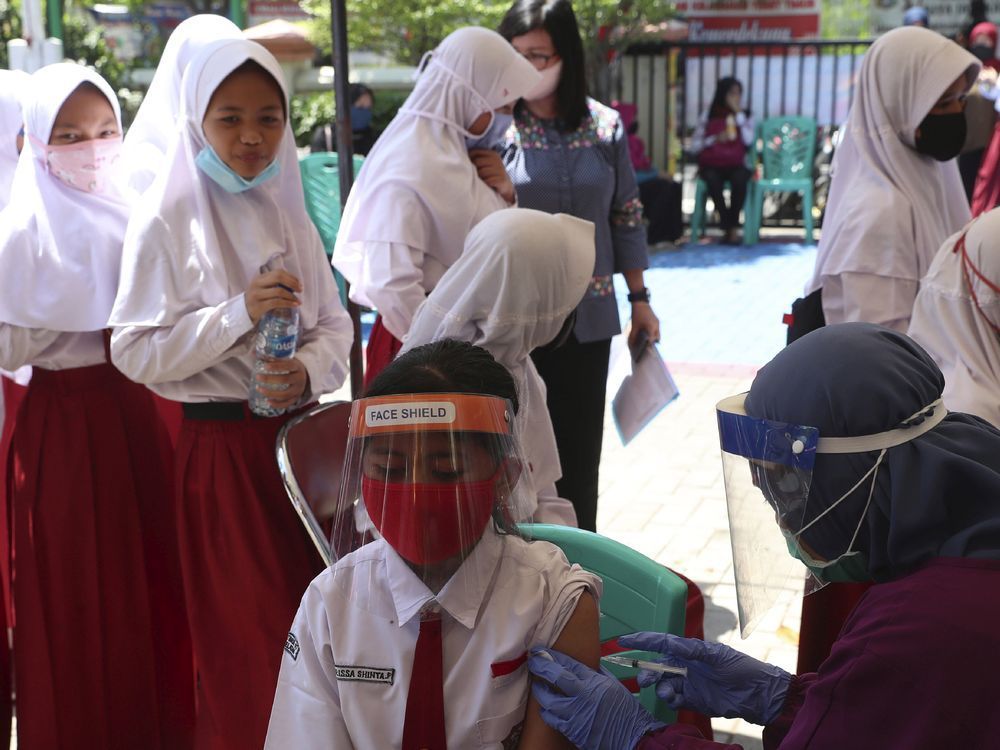corinne schelle considers herself one of the lucky ones. the 43-year-old kamloops, b.c. woman has now been cancer-free for five years. weeks before her son’s first birthday, schelle was told she had
cervical cancer related to the human papillomavirus (hpv).the virus, which is a sexually transmitted infection, is behind almost every case of cervical cancer in women, and can cause a variety of cancers like head, neck and anal cancer in both women and men. and although the incidence rates of cervical cancer are declining, according to the
canadian partnership against cancer (cpac), roughly 1,300 women are diagnosed with the disease each year, and an estimated 400 will die from it.“i knew that i had hpv, but it didn’t actually occur to me at all. it was so many years ago,” schelle, who says that the virus was detected in her 20s after an abnormal pap test, but subsequent tests were normal, even into her pregnancy.then came the heavy bleeding. “i was dealing with all the things that a first-time mom deals with, the lack of sleep, the stress, the hormones,” she says. “but i had this prolonged new bleeding that my doctor thought was my first postpartum period.”
‘i had to give up a part of my body’
her doctor’s exam revealed a possible tumour in the cervix, the lower part of the uterus that connects to the vagina. this led to an urgent referral to a cancer clinic — and an emergency radical hysterectomy to remove her cervix, fallopian tubes and uterus.“they take all of that, but they leave your ovaries in the hopes that you will still be able to produce your own estrogen,” she says. “i had to give up a part of my body and that was really crushing for me; i also had to face that this meant i couldn’t have any more children.”when a pathology report following the surgery showed there were some cancerous cells remaining close to the uterus, the next course of action was radiation and chemotherapy. this caused schelle to lose her hair, and forced her to give up breastfeeding her son — something she describes as the hardest part of the diagnosis.“i just remember rocking him and telling him that this would be the last time,” she says.to help herself move forward, schelle found resources and support at
inspirehealth, a b.c.-based non-profit organization that offers counselling and self-care workshops to cancer patients.
hpv vaccination: a proven tool for prevention
one of the challenges of hpv is that there often are no obvious signs of infection — even though genital warts are one symptom, these can be small (they resemble a cauliflower) or be hidden inside the body, out of sight. and while for women, the warts may be spotted on the vulva, thigh, anus, rectum, or inside the vagina or urethra, men can find the warts on the penis, scrotum, thigh, anus, rectum or in the urethra.perhaps most important for schelle, though, as a cervical cancer survivor, is to advocate for
hpv vaccination: after all, it’s a proven tool for prevention.beginning in the 2000s, many countries,
including canada and the u.k., started vaccinating school-aged girls (too late for schelle herself), and later boys. and though results have shown a decrease in the high-grade lesions that can lead to cervical cancer, it’s difficult to show a decrease in actual cervical cancer diagnoses because it takes so long for the disease to develop, and the numbers are relatively small.however,
a breakthrough study from scientists in the u.k. looking at the effectiveness of the hpv vaccine, recently discovered a nearly 90 per cent reduction in cervical cancer in women who were first vaccinated when they were 12 or 13 years old.“my parents would’ve never been able to predict, and nor would i, what my sexual activity was going to look like years down the road,” says schelle. “it only takes sleeping with one person to get it. if you can get a vaccine to prevent something as serious and life-altering as cancer, it makes sense.”it’s a sentiment shared by experts in the cervical care community.“[discovering] the role of the human papillomavirus as being responsible for the majority of cervical cancers has been a game-changer,” says cpac’s vice-president of cancer control erika nicholson. “we’re seeing the positive impact that immunization has on preventing this cancer. it’s safe, it’s effective, and we’re fortunate in canada that we do have publicly-funded vaccine programs targeted to school-based children.”in fact, the
canadian population attributable risk of cancer (compare) study, funded by the canadian cancer society, found that we could prevent about 5,300 cervical cancer cases by 2042 if more canadian children were vaccinated against hpv.
hpv vaccine is most effective in pre-adolescent years
school-based immunization schedules for the hpv vaccine start in grades 4 to 7. notably, the vaccine is most effective when it is given during the pre-adolescent years, says a
2017 review of the canadian data by researchers at the university of saskatchewan’s school of public health:“to prevent infections and reduce the burden of hpv-related diseases (including cervical cancer), communities should be made aware and encouraged to vaccinate their children,” researchers conclude. “there is a documented need to direct effort and focus interventions toward improving hpv vaccination uptake in canada.”
 6 minute read
6 minute read









